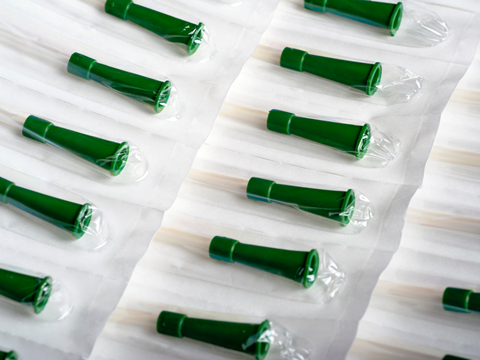
Negotiators at INC-5 are urged by the Global Self-Care Federation, the International Federation of Pharmaceutical Manufacturers and Associations (IFPMA), and the International Generic and Biosimilar Medicines Association (IGBA) to prioritize patient safety and accept plastic medical packaging where safe alternatives don’t yet exist.
In a joint statement, the organizations acknowledge the importance of an instrument that combats the adverse effects of plastic pollution on both human and environmental health by reducing unnecessary plastic use and instilling a circular economy.
They emphasize that plastics play an ‘important role’ throughout the pharmaceutical cycle, including in packaging and medical devices. As such, they encourage Member States to consult and coordinate with health regulators, environmental policymakers, and manufacturers ‘to avoid any conflicting requirements’.
In order to meet ‘stringent’ safety and quality standards when manufacturing, producing, and distributing healthcare products, the signatories call for an internationally harmonized treaty that focuses on patient health as plastics are replaced with alternative materials.
In their view, a treaty can protect both patients and the planet with harmonized, extended compliance periods that align with regulatory timelines. At the same time, limited exemptions should be granted where there are not yet safe, feasible alternatives to plastics.
“Establishing harmonized rules through a health-protective treaty will ensure society benefits from plastics while promoting patient safety, climate resilience, and sustainability in healthcare,” the letter concludes.
In another statement, WWF has called for negotiators to avoid removing or watering down core measures in the upcoming treaty and counteract the “dismal” outcomes of COP16 and COP29 with a strengthened instrument. It encourages global bans for the “most harmful” plastic products and chemicals, binding product design and performance requirements, and more.
An open letter from the Business Coalition for a Global Plastics Treaty envisions an “ambitious and actionable treaty” but warns that “a treaty based on voluntary measures alone risks delaying action by decades”, with the signatories offering to “work together with policymakers across the world on this critical task”.
If you liked this story, you might also enjoy:
The ultimate guide to the Packaging and Packaging Waste Regulation in 2024
How are the top brands progressing on packaging sustainability?
Sustainable Innovation Report 2024: Current trends and future priorities
Everything you need to know about global plastic sustainability regulation














No comments yet